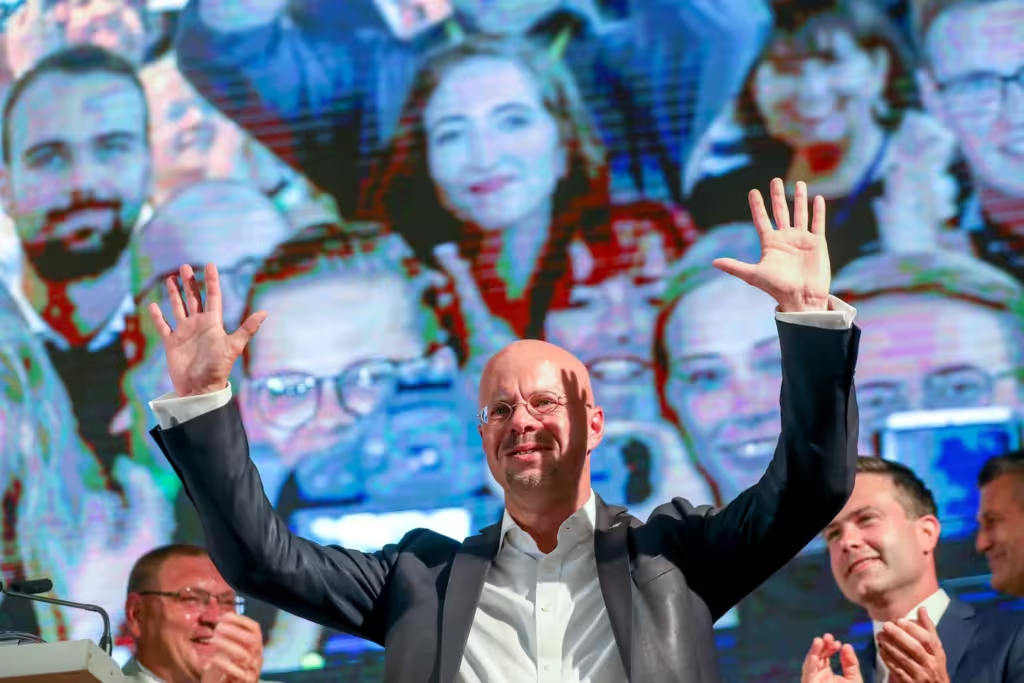Germans in the state of Brandenburg cast their votes on Sunday in a regional election that could see the far-right Alternative for Germany (AfD) party emerge as the frontrunner. This anticipated victory builds on the party’s recent successes in other eastern German states, where it has outperformed Chancellor Olaf Scholz’s Social Democrats (SPD) in traditional strongholds.
The AfD made history earlier this month by becoming the first far-right party to win a state election in Germany since World War II, securing victory in Thuringia on September 1 and narrowly missing first place in Saxony on the same day. However, despite its growing popularity, the AfD is unlikely to form a coalition government, as other parties have consistently refused to collaborate with them. In both Thuringia and Saxony, the AfD did not secure a majority, and similar expectations surround its performance in Brandenburg.
The AfD’s rise has coincided with growing public concerns about the economic slowdown, immigration issues, and the ongoing war in Ukraine, sentiments that are particularly pronounced in the formerly Communist eastern regions of Germany. Additionally, the party aims to capitalize on dissatisfaction with the infighting within Scholz’s three-party federal coalition, further bolstering its support.
Polling stations closed at 6 p.m. local time (1600 GMT), with initial exit polls and projections expected shortly thereafter. Hans-Christoph Berndt, the AfD candidate for Brandenburg’s state premier, expressed optimism as he cast his ballot in Golssen, south of Berlin. “If we continue to receive the same level of support we’ve seen in recent weeks and months, things in Germany will start to improve,” he stated, underscoring that while this election is crucial, it will not solely dictate Brandenburg’s future.
A potential AfD victory would represent a significant embarrassment for the SPD, which has governed Brandenburg—a state with a population of 2.5 million—since the reunification of East and West Germany in 1990. It would also raise serious questions about Scholz’s ability to lead the SPD into the upcoming federal elections, particularly given his status as the least popular German chancellor on record.
Dietmar Woidke, the popular SPD premier of Brandenburg, has largely distanced himself from Scholz during the campaign, focusing instead on highlighting economic achievements over the past five years, including the establishment of a Tesla factory and the expansion of Brandenburg airport, now Germany’s third most significant aviation hub. Woidke has voiced concerns about the rise of right-wing extremism, stating, “My greatest challenge in this legislative period is to not allow right-wing extremists to have anything to say in this country ever again.” He has even threatened to resign if the SPD falls behind the AfD in the election.
Polling data leading up to the election indicated a tightening race, with the AfD projected to receive 28% of the vote, closely followed by the SPD at 27%. The conservative party was forecasted to secure 14%, while the newly formed leftist Sahra Wagenknecht Alliance (BSW) was expected to garner 13%. AfD national party leader Tino Chrupalla has called for Scholz to resign if the SPD is unable to secure a win, stating, “It is high time this government suffer the consequences after this state election.”
In addition to the SPD’s struggles, Scholz’s junior coalition partners, the Free Democrats and the Greens, appear poised to fall short of the 5% threshold necessary to enter the state parliament, according to polls. At the national level, the coalition parties are currently polling lower than the opposition conservatives, though political analysts caution that dynamics could shift significantly as the federal election approaches in September 2025.
As the votes are tallied, the outcome of this election could not only reshape the political landscape in Brandenburg but also signal broader trends for the future of German politics.



